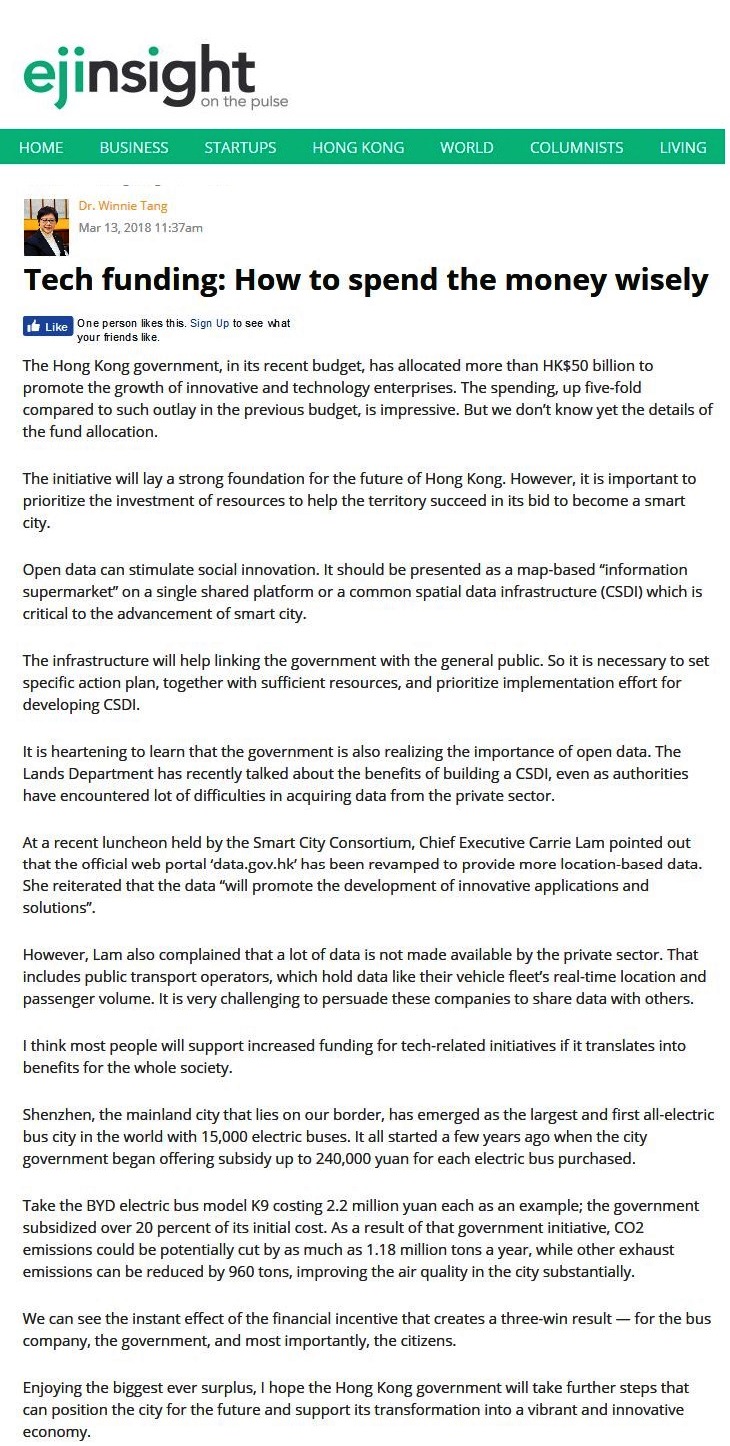網上版請按此

Tech funding: How to spend the money wisely
The Hong Kong government, in its recent budget, has allocated more than HK$50 billion to promote the growth of innovative and technology enterprises. The spending, up five-fold compared to such outlay in the previous budget, is impressive. But we don't know yet the details of the fund allocation.
The initiative will lay a strong foundation for the future of Hong Kong. However, it is important to prioritize the investment of resources to help the territory succeed in its bid to become a smart city.
Open data can stimulate social innovation. It should be presented as a map-based "information supermarket" on a single shared platform or a common spatial data infrastructure (CSDI) which is critical to the advancement of smart city.
The infrastructure will help linking the government with the general public. So it is necessary to set specific action plan, together with sufficient resources, and prioritize implementation effort for developing CSDI.
It is heartening to learn that the government is also realizing the importance of open data. The Lands Department has recently talked about the benefits of building a CSDI, even as authorities have encountered lot of difficulties in acquiring data from the private sector.
At a recent luncheon held by the Smart City Consortium, Chief Executive Carrie Lam pointed out that the official web portal 'data.gov.hk' has been revamped to provide more location-based data. She reiterated that the data "will promote the development of innovative applications and solutions".
However, Lam also complained that a lot of data is not made available by the private sector. That includes public transport operators, which hold data like their vehicle fleet's real-time location and passenger volume. It is very challenging to persuade these companies to share data with others.
I think most people will support increased funding for tech-related initiatives if it translates into benefits for the whole society.
Shenzhen, the mainland city that lies on our border, has emerged as the largest and first all-electric bus city in the world with 15,000 electric buses. It all started a few years ago when the city government began offering subsidy up to 240,000 yuan for each electric bus purchased.
Take the BYD electric bus model K9 costing 2.2 million yuan each as an example; the government subsidized over 20 percent of its initial cost. As a result of that government initiative, CO2 emissions could be potentially cut by as much as 1.18 million tons a year, while other exhaust emissions can be reduced by 960 tons, improving the air quality in the city substantially.
We can see the instant effect of the financial incentive that creates a three-win result — for the bus company, the government, and most importantly, the citizens.
Enjoying the biggest ever surplus, I hope the Hong Kong government will take further steps that can position the city for the future and support its transformation into a vibrant and innovative economy.
Dr. Winnie Tang
Honorary Professor, Department of Computer Science, The University of Hong Kong